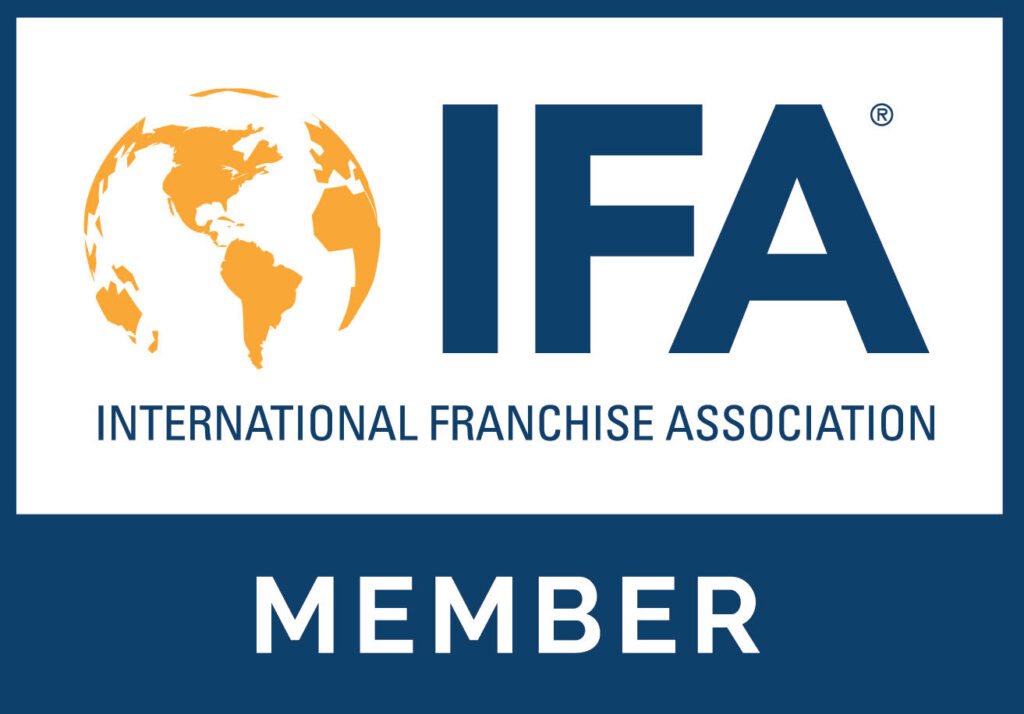Commonly Asked Questions - Franchisors
When hiring an executive for your franchise, look for qualities such as strong leadership skills, industry knowledge, strategic thinking, adaptability, and the ability to drive growth. An ideal candidate should also demonstrate a track record of successful operations, excellent communication skills, and a cultural fit with your franchise’s values and goals.
Effective channels include partnering with executive search firms, leveraging industry-specific job boards, utilizing professional networks and associations, attending industry conferences, and leveraging social media platforms like LinkedIn. Additionally, referrals from trusted contacts can be a valuable source of top talent.
Industry experience is crucial as it ensures the candidate understands the unique challenges and opportunities within the franchise sector. While it’s not the only factor, having relevant industry experience can accelerate the executive’s ability to contribute effectively and align with your Brand’s objectives.
Yes, hiring a recruitment agency can be highly beneficial. We offer access to a broad network of candidates, expertise in identifying top talent, and support in managing the recruitment process. Recruitment agencies can also provide valuable market insights and handle time-consuming tasks, allowing you to focus on your core business.
Best practices include preparing a structured interview format, focusing on both behavioral and situational questions, and involving key stakeholders in the process. Ensure you assess the candidate’s fit with your franchise culture, leadership style, and ability to address specific business challenges.
Verify credentials by checking references from previous employers, reviewing performance metrics, and validating educational and professional qualifications. Conduct background checks and look for consistency in the candidate’s achievements and their impact on past organizations. These are all things that we assist our clients with.
Evaluate leadership and decision-making skills through situational interview questions, behavioral assessments, and by reviewing their past performance. Consider their ability to handle complex situations, make strategic decisions, and lead teams effectively.
An effective onboarding process should include a comprehensive orientation program, clear role expectations, introduction to key team members, and a structured plan for setting goals and performance metrics. Providing ongoing support and regular feedback is also essential for successful integration.
Attract executives by showcasing your Brand’s growth potential, emphasizing opportunities for innovation, and highlighting your commitment to professional development. Offer a competitive compensation package and create a compelling vision of the future for your franchise.
Current franchise employees can provide valuable insights into the company culture and work environment. Involving them in the hiring process through panel interviews or feedback sessions can help ensure the new executive is a good cultural fit and can foster team buy-in.
Red flags include inconsistent employment history, lack of relevant experience, poor references, and unclear or inflated achievements. Be cautious of candidates who exhibit difficulty in providing specific examples of past successes or who seem unable to articulate a clear vision for the role.
Retain top talent by offering competitive compensation, providing opportunities for professional growth, and fostering a positive work environment. Regularly recognize and reward achievements, encourage open communication, and ensure a healthy work-life balance.
Commonly Asked Questions - Candidates
Effective strategies include attending industry conferences and events, joining the International Franchise Association, participating in relevant online forums and social media groups, and connecting with industry professionals on LinkedIn. Building relationships with franchise owners and industry insiders can also open up valuable opportunities.
Tailor your resume and cover letter by highlighting relevant experience in the franchise sector, showcasing your accomplishments and impact, and aligning your skills with the specific needs of the franchise. Use keywords from the job description and demonstrate your understanding of the franchise model.
Franchise brands often look for skills such as leadership, operational excellence, strategic thinking, and franchise management experience. Relevant experience in scaling operations, driving growth, and managing multi-unit operations can also be highly desirable.
Highlight your leadership abilities by providing examples of how you’ve successfully led teams, managed projects, and made strategic decisions. Share specific instances where your leadership contributed to achieving organizational goals or overcoming significant challenges.
Certifications such as Certified Franchise Executive (CFE) or other relevant industry-specific credentials can enhance your attractiveness to franchise owners. These certifications demonstrate your commitment to the franchise industry and your expertise in franchise management.
Industry experience is important as it shows familiarity with the franchise model and the unique challenges it presents. While not always required, relevant experience can significantly boost your candidacy by demonstrating your ability to navigate the franchise landscape effectively.
Demonstrate your ability to drive growth and innovation by sharing specific examples of past achievements where you implemented successful strategies, introduced new ideas, or contributed to significant business growth. Highlight metrics and outcomes that showcase your impact.
Top online platforms include LinkedIn, Indeed, Glassdoor, and industry-specific job boards. Additionally, many franchises post job openings on their websites and utilize executive search firms to find top talent. Careertopia will know about roles that are not published anywhere due to confidentiality.
Avoid pitfalls such as submitting generic resumes, failing to tailor your application to the franchise industry, and not thoroughly researching the franchise before applying. Additionally, ensure you address any gaps in your experience or qualifications in your application materials.
Research a franchise by reviewing its mission, values, and growth trajectory. Speak with current or former employees, explore franchise reviews, and analyze the franchise’s market position and culture. Assess if the franchise’s goals and values align with your career objectives and personal values.
Ask questions about the franchise’s growth plans, culture, management style, and expectations for the executive role. Inquire about the support provided for new executives, key challenges facing the franchise, and opportunities for professional development. Ask for a copy of their FDD…and read it!
Key differences include the level of autonomy, the structure of operations, and the nature of decision-making processes. Franchise environments often emphasize adherence to established systems and processes, whereas corporate environments may offer more flexibility and centralized decision-making. Understanding these differences can help you assess how well your skills and preferences align with the franchise model.


